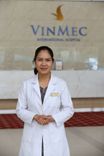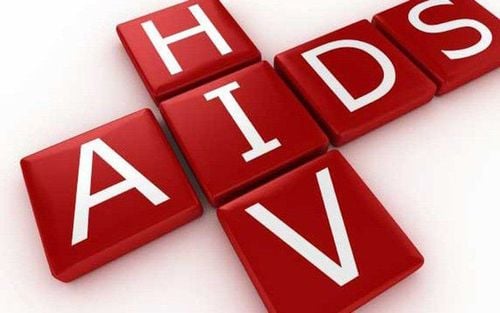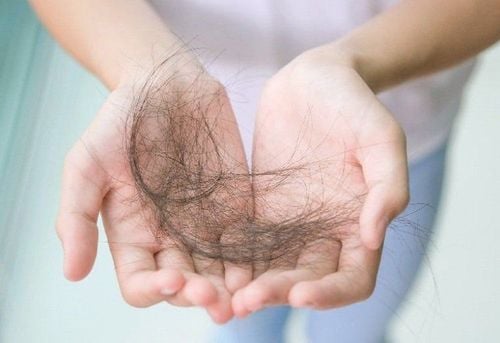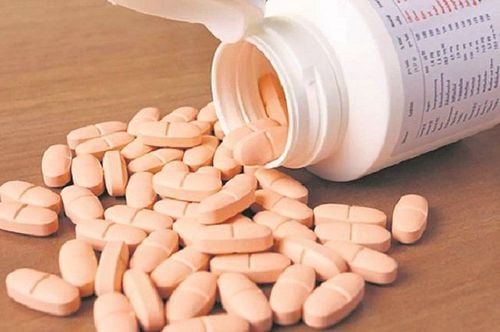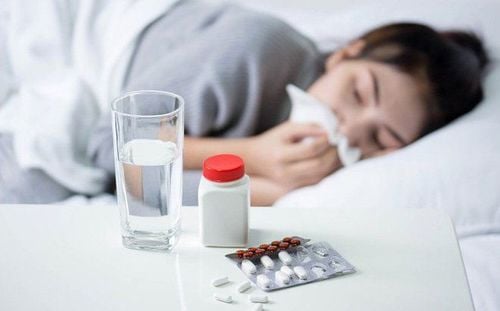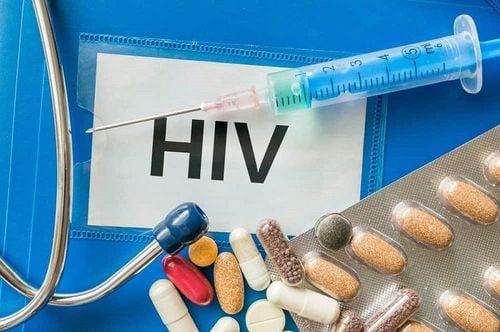This is an automatically translated article.
The article was professionally consulted by Specialist Doctor II Bui Thi Thu - Obstetrician and Gynecologist - Department of Obstetrics and Gynecology - Vinmec Hai Phong International General Hospital.Care for HIV-infected mothers and infants born to HIV-infected mothers should be carried out quickly and comprehensively right after birth to minimize the risk of HIV infection for the baby and ensure the baby's health. and mom.
1. Taking care of HIV-infected mothers right after giving birth
1.1 Providing antiretroviral drugs for mothers with HIV community. For women who are determined not to need treatment or have only been diagnosed with HIV during prenatal screening, an independent mother-to-child transmission regimen will be used for 1 week after birth. that stops the drug.Mothers will be referred to HIV/AIDS treatment facilities for continued health monitoring and periodic re-examination. When it is confirmed that the mother is infected with HIV, the mothers will be treated according to the appropriate regimen. Mothers whose prenatal screening tests are HIV-positive but subsequent confirmatory tests show no infection should immediately discontinue all interventions to prevent mother-to-child transmission of HIV.
For mothers who have been on HIV treatment since before pregnancy or have been on treatment during pregnancy, it is necessary to continue treatment according to the selected regimen. After giving birth, mothers need to return to HIV/AIDS treatment facilities for re-examination and monitoring of their health status.
1.2 Counseling HIV-positive mothers on unwanted contraception
HIV-positive mothers will be counseled to prevent unwanted pregnancy. Using condoms during sex is the most appropriate form of contraception. Condoms are dual-use, both to prevent pregnancy and to help prevent HIV transmission through sex.
This is the best method of contraception for HIV-infected women, whether the husband is HIV-infected or not. Some other methods of contraception such as IUDs, oral contraceptives, injections, etc. can help prevent pregnancy but cannot prevent HIV and other sexually transmitted diseases.

Breast milk is the best food for children, not only providing adequate nutrients needed for development, breast milk with an abundant source of antibodies also Helps protect babies from many diseases during the first few months of life. However, if the mother has HIV , the HIV virus will be present in the milk and can be passed on to the baby. The longer mothers with HIV breastfeed their babies, the higher the risk of their babies getting HIV. The risk of HIV infection in children is highest when the baby is breastfed while receiving other foods.
Should mothers with hiv breastfeed or not? International organizations of the United Nations such as WHO, UNICEF, UNFPA, UNAIDS have agreed to offer two methods of feeding children with HIV-infected mothers as follows:
Formula feed when the family has enough conditions. economical to maintain breastfeeding with formula milk, the selected milk source ensures quality, safety, and is available in the market. The conditions of clean water source, preparation tools and hygiene during the preparation process are guaranteed. If the above conditions are not met, mothers with HIV can choose to breastfeed their babies. It is necessary to exclusively breastfeed babies in the first months, stop as soon as possible as soon as the mother has conditions to give the child complementary foods, at the latest at 6 months, the child must be stopped breast milk. Depending on her condition, an HIV-infected mother can only choose one of the two ways to raise her child as above. When using breast milk and formula, babies are at high risk of diarrhea, damaged intestinal mucosa, HIV virus will enter the baby's body more easily. Therefore, mothers absolutely cannot breastfeed their babies, give formula milk or use other complementary foods. When exclusively breastfeeding, if mother and baby have skin and mouth infections, it is necessary to treat completely before breastfeeding. Mothers infected with HIV should handle milk by boiling the milk to 100 degrees to kill the HIV virus, soaking it in cold water to let the milk cool down to the appropriate temperature, then feeding the baby.

2. Taking care of HIV-infected babies after birth
Take care of babies born to mothers with HIV immediately after birth as follows:
When the baby's head is out, it is necessary to quickly wipe the baby's face gently with a soft cloth soaked in warm isotonic serum. When the baby is finished, dry the baby's whole body with a soft towel. Wait for the umbilical cord to stop beating completely before clamping the umbilical cord, do not stroke the umbilical cord towards the baby. Only suck oil when necessary, the suction action must be gentle to avoid causing trauma to the child. Bathe your baby as soon as possible. Give your baby antiretroviral drugs to prevent transmission as soon as possible during the first 72 hours after birth. Follow-up care measures are taken as follows:
2.1 Caring for children with undetermined HIV infection
Babies born to HIV-positive mothers need early diagnostic testing to confirm or exclude except for HIV infection. Early diagnosis helps to choose a more effective method of feeding the child. Early diagnosis also helps health workers distinguish children infected with HIV and AIDS from other diseases such as tuberculosis, infection, nutrition in children without HIV. The results of the diagnosis will guide the treatment. Prophylactic antibiotics are the course of vaccination for children. Children who test negative will not need antibiotic prophylaxis, thereby reducing the risk of drug resistance and unnecessary costs, and children will not need to be monitored at an HIV outpatient clinic.
Regardless of whether children are infected with HIV or not, babies born to mothers with HIV are often in poor health, at risk of illness and death many times higher than babies born to uninfected mothers. Therefore, children whose mothers are infected with HIV need regular and continuous monitoring of development, early detection and prompt treatment of infections. Children need periodic vitamin A supplements to reduce mortality and morbidity. Mothers need to be consulted and supported in child rearing, ensuring that the nutritional needs of the child are fully met.
Fungal pneumonia is a severe respiratory disease, common in HIV-infected children and often appears before the diagnosis of HIV-infected children. Therefore, all babies between 4-6 weeks postpartum will receive prophylactic treatment with the antibiotic Cotrimoxazol (Trimethoprim-Sulfamethoxazol) until test results are available. Depending on the results, whether the child is infected with HIV or not, the child will stop the drug or continue the treatment.
In addition, children also need to be fully vaccinated with vaccines to create active prevention against vaccinated bacteria and viruses. Prevention and treatment of tuberculosis and malaria.
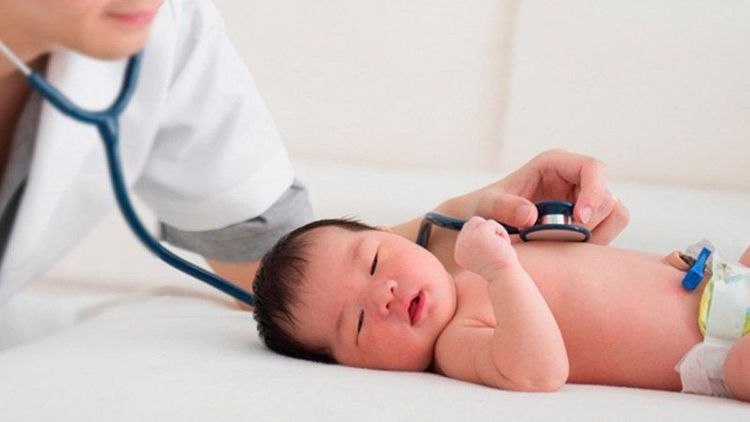
The mortality rate for HIV-infected children is nine times higher than that of exposed but not HIV-infected children. Therefore, in addition to the recommended care methods for children exposed to HIV, additional attention should be paid to:
Closely monitor children's health: close monitoring of children's health, periodical visits to clinics HIV/AIDS outpatient examination plays a very important role, helping to determine what clinical stage the child is at, whether the disease is progressing or not, and orienting treatment with antiretroviral drugs, drug replacement, and alternative medicine. Change the regimen when necessary and guide the maintenance of cotrimoxazole prophylaxis. It is necessary to ensure the nutritional needs of children because the energy requirements of HIV-infected children are higher than those of uninfected children. Normally, the energy requirements of HIV-infected children are 10% higher than normal, but if children lose weight, their energy requirements need to increase by 50-100%. In HIV-infected children, breastfeeding is especially important for their child's development. In addition, children need to be provided with vitamin A properly to reduce the risk of diarrhea, pneumonia,... Prevention of fungal pneumonia is an important part of hiv newborn care. HIV-infected children will receive cotrimoxazole prophylaxis during the first 12 months of life. In addition, Cotrimoxazol is also recommended when a child has symptoms of AIDS, severe immunosuppression or a recent episode of pneumonia. Vinmec International General Hospital is one of the hospitals that not only ensures professional quality with a team of leading doctors, modern equipment and technology, but also stands out for its examination and consulting services. and comprehensive, professional medical treatment; civilized, polite, safe and sterile medical examination and treatment space.
Please dial HOTLINE for more information or register for an appointment HERE. Download MyVinmec app to make appointments faster and to manage your bookings easily.
